Your Keyword Research Strategy is key to your search engine optimization success. It is a critical element of your online marketing strategy and without it, you will struggle to get visibility and visitors to your website. This article highlights the best tools that help you find the right keywords for your site and then shows you how to manage them effectively.
What is keyword research?
The process of keyword research entails determining what people are looking for on the internet. The process entails utilizing a variety of tools and resources to find the ideal keywords that will assist increase traffic to your website and convert visitors into purchases.
Visitors to your website are often looking for information about the items and services you offer. To give this type of information, you must provide content on your website that motivates users to make purchases.
Use tools such as Google AdWords Keyword Planner and SEMrush Keyword Tool to determine what people are looking for in the market. These applications can recommend the finest keywords for your company. Alternative sources, such as social media networks like Facebook, Twitter, and Pinterest, may also be searched, and those keywords can then be put alongside competing websites to obtain a better understanding of the amount of rivalry and ranking. The next stage in writing articles is to ensure that you have a strategy in place because a blog or any other type of website would be pointless without one!
Why is keyword research important?
The goal of keyword research is to identify the most relevant terms that consumers use while looking for products and services. This will help your website rank better in search engines.
Here’s how it works: If you’re shopping for a new home, what terms or phrases would you enter into Google? If you answered “home,” we may presume that your keyword research has to be improved because these phrases do not have significant search traffic and so are not excellent selections for us. On the other hand, if you’re looking for something specific, such as “furniture” or “clothes,” these terms have a significant volume of searches on Google and would be ideal keywords to utilize in our SEO strategy.
Long-tail keywords provide greater benefits than short-tail keywords since they yield better results when consumers search for them. The concept is straightforward: People like to search for information about products and services online, so coming up with captivating and relevant content ideas linked to those themes is critical if we want them to rank high in the SERPs (Search Engine Results Pages).
Keyword Research Tools
* SEMrush
You can find the best keyword suggestions for higher search engine rankings by using SEMRush, an online tool highly recommended for finding keyword suggestions.



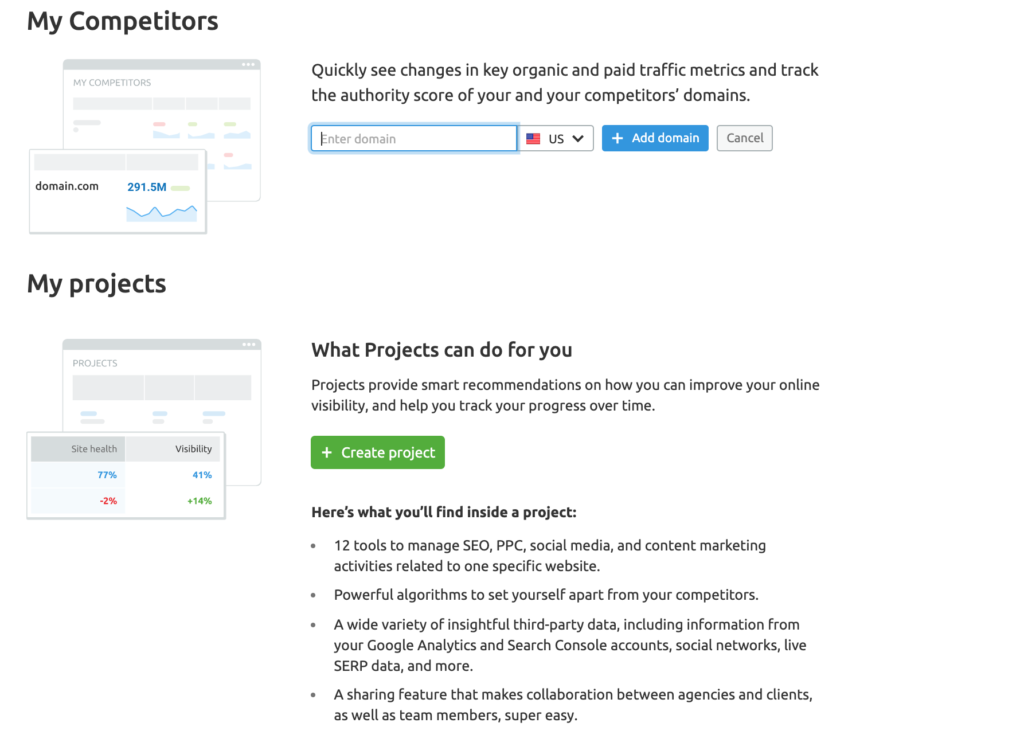

2. SEOcocpit
This platform provides advanced sorting and filtering features to help you get the right keywords.
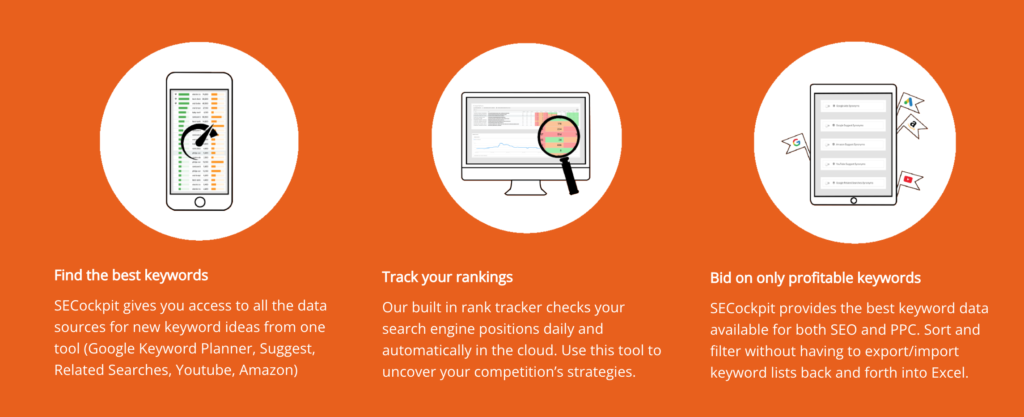

Keyword research for SEO pros.
Keyword Research
- Keyword research at warp speed
- International: For every language and country
- Import existing keywords
Keyword Ideas
- Thousands of keyword ideas
- Keyword ideas via Google Ads, Google Suggest and Google Related Searches
- Keyword ideas via Amazon and YouTube Suggest
- Semantic Keyword Search
Keyword Analysis
- Superior & unrestricted keyword analysis data
- Thousands of data points summarised into one easy value: the niche
- Extensive details for every keyword idea
- Search trends for every keyword idea
Competition Analysis
- Keyword ideas from competitors
- Moz Data
- Compare URLs
Organize Keywords
- Quickly sort and filter
- Organize keyword ideas: Folders and labels
- Export keywords / Create keyword reports
3. Google AdWords Keyword Planner
With Google AdWords Keyword Planner, you can come up with ad campaign ideas that are tailored to your business’ budget and target market.


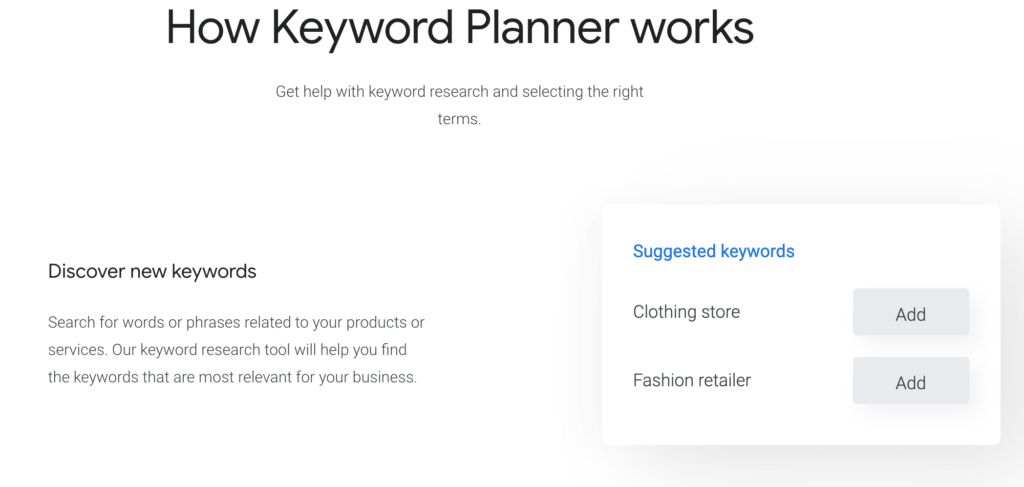

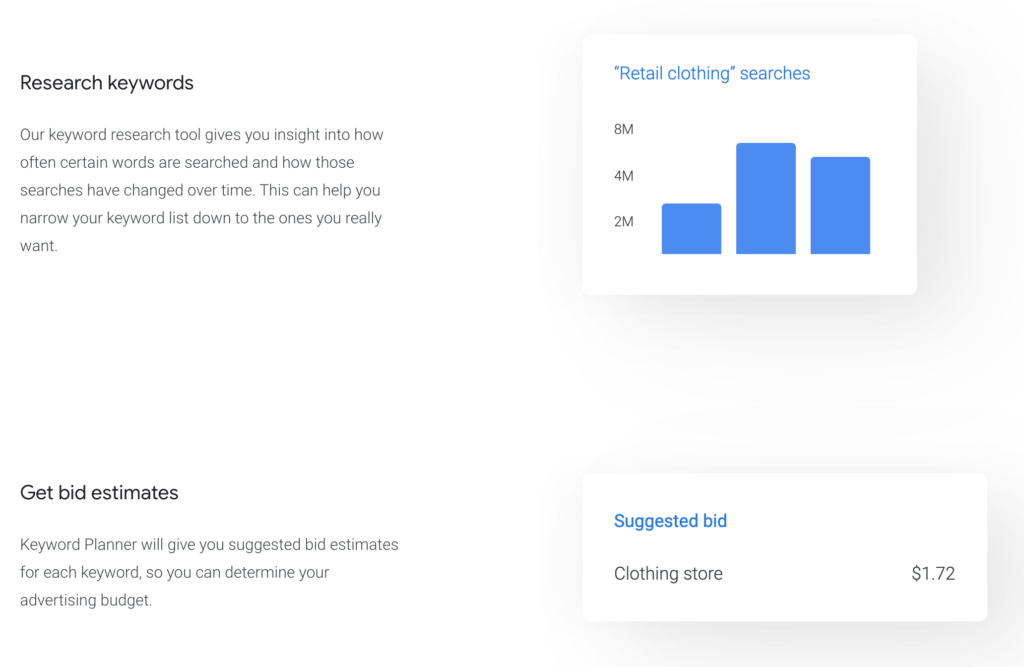

4. Keyword Tool
This is a tool for generating long-tail keywords based on Google trends.
Using Keyword Tool Pro You Will Be Able To Get:
- Twice as many keywords compared to the free version of Keyword Tool
- 100% accurate Google search volume that can be localized to 192 countries, 47,035 individual locations and 46 languages
- 100% accurate Bing search volume data
- Accurate estimated search volume for YouTube, Amazon and eBay keywords
- Level of competition on Google Ads
- Suggested bid on Google Ads
- Ability to get search volume data for your list of keywords
- Ability to export all the data into Excel or CSV file
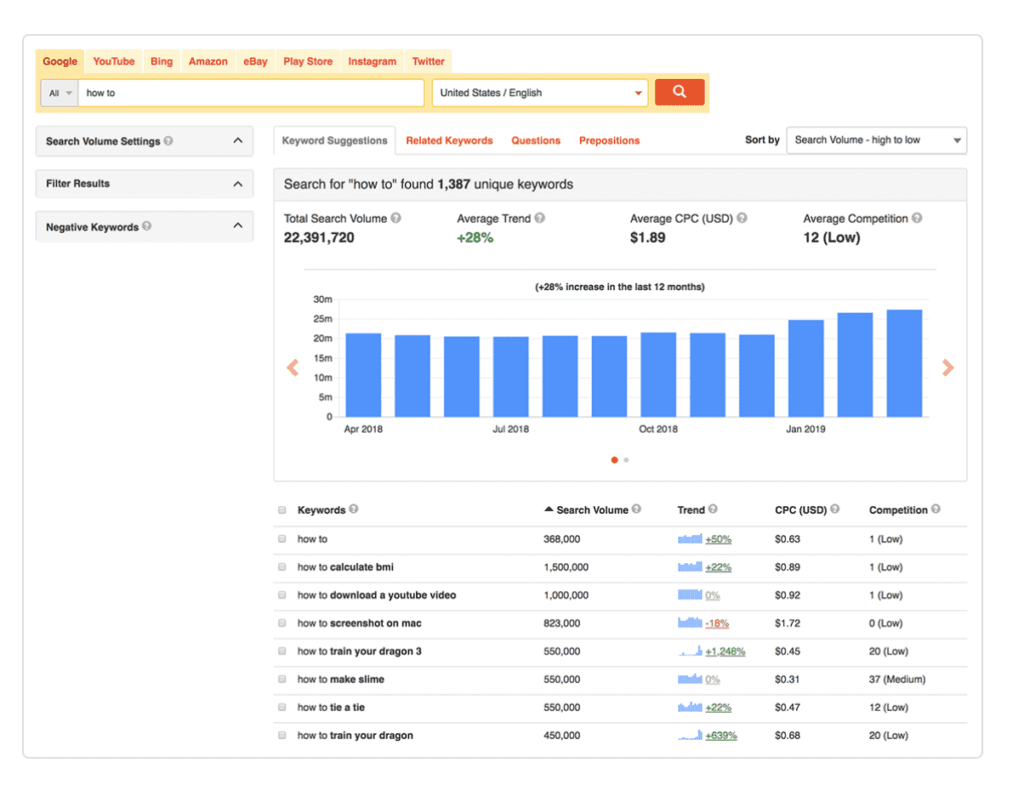

5. Google Trends
Google Trends is a tool that allows you to examine how popular a certain subject or keyword has become over time. It may be used to assess the popularity of a specific website, product, or service.
To utilize Google Trends, enter the keyword of interest and then click the “Trends” option. This will provide a graph of how frequently the word has been searched for throughout time.
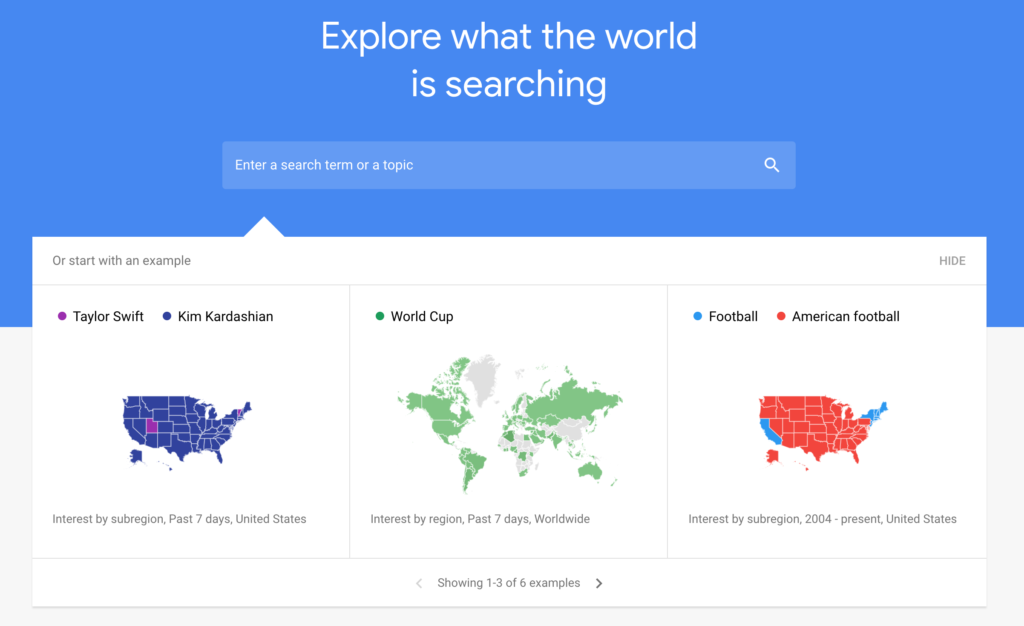

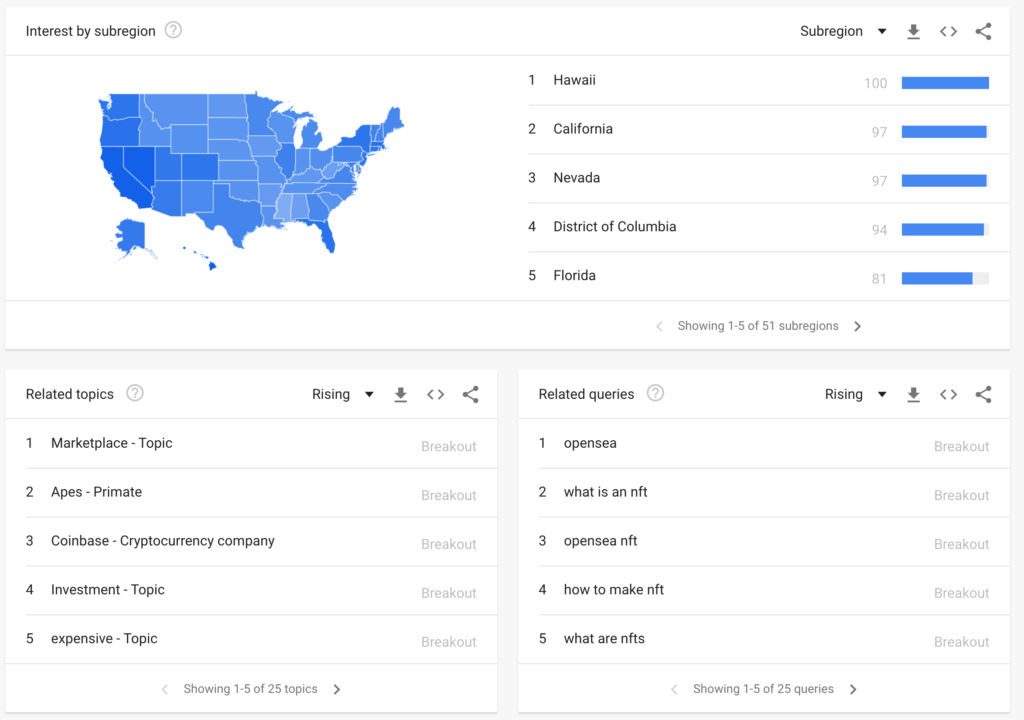

6. Soovle
Soovle is a customizable keyword research engine that provides suggestion services from all the major providers in one place. Soovle does not crawl the net – all services and their content are the property of the respective providers.
It has a draggable Saved Suggestions feature. It’s a way to look spiffy when performing a web search.


How to Select Keywords
There are a few things you need to keep in mind when selecting keywords for your website or blog.
First, you need to consider what your target audience is looking for. Are they interested in health and fitness information, fashion trends, home improvement tips, or something else? Once you know this, it’s easier to find keywords that are relevant to your niche.
Second, make sure the keywords are search engine friendly. This means they should be easy to type and spell correctly, and they should not be too long or complicated. You also want them to be related to the topic of your website or blog. For example, if you’re writing about health and fitness, don’t select words like “weight loss” or “cardio exercises.” Instead, try words like “healthy eating,” “fitness tips,” or “exercises for beginners.”
Finally, once you’ve selected your keywords, it’s time to start promoting your site or blog with paid advertising (such as Google AdWords) and organic search (through online content marketing).
Online Visibility Impacts Citations
The number of citations is increasing in research that suggests online visibility is important. In other words, if your website or blog is well-known and highly cited by researchers, it will likely result in more citations in your work.
There are, however, several caveats to this relationship: To begin with, the effect of internet exposure on citations is not linear. That instance, a website or blog with great online exposure may have a smaller influence on citations than a website or blog with low online visibility. Second, the influence of internet exposure on citations varies by field. That is, certain fields appear to be more influenced by internet presence than others.
As a result, scholars aiming to enhance their citation count must consider both their subject and the amount of internet exposure of their competitors.
We just mentioned a few methods of finding keywords and a few tools to examine at a glance. Check back soon for more updates! You can trust EboPal to deliver excellent results if you need help with SEO Optimization or building your website. To learn more, please contact us at +1 (312) 970-9660 or e-mail us at hello@ebopalresources.com
